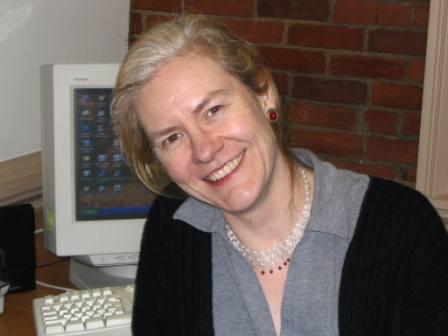Tuesday, February 06, 2007
Love & War - Poems of Iraq with Kakahama Askary & Christi Kramer

Sunday Kind of Love presents:
Love and War: Poems of Iraq in Arabic, English and Kurdish - with Kakahama Askary and Christi Kramer
Sunday, February 18, 4-6 pm
Busboys & Poets
14th & V Streets, NW
(U Street/Cardozo on the Green Line)
http://www.busboysandpoets.com/
A Busboys & Poetry Event. Free and open to the public. Wheelchair accessible.
Cohosted by Sarah Browning, D.C. Poets Against the War, and Regie Cabico, Sol & Soul. For more information: womenarts2@aol.com
Askary and Kramer will read a collage of poems from and about Iraq -- in Arabic, English and Kurdish -- including Kramer's own poems of the Iraqi Kurds in exile. Followed by an open mic. Readings of poems by Iraqi and Arab poets encouraged.
Kakahama Askary, a Kurd of Northern Iraq, has devoted his life to work for justice and peace. Because of war and unrest, Kakahama grew up living in all parts of Iraq. He graduated from Al-Azhar University, were he was certified Imam, and obtained degrees in law, political science and international relations from Institute of Arab Researchers and Studies, Cairo, Egypt. He currently is director of the Egypt Exchange Program, a professor in the Department of Philosophy and Religion at James Madison University, and Director of the International Organization for Kurdish Human Rights. In 1998, he was recipient of the “In Defense of Human Rights” Award from the Kurdish Institute in Paris, France.
Christi Kramer, born in Northern Idaho, is a graduate of George Mason University’s Creative Writing program. Kramer will read poems from her manuscript, Reading The Throne, an ethnography-in-poetry of Iraqi Kurds exiled and living as refugees in Harrisonburg, Virginia. The title, Reading The Throne, is in reference to ayat al-kursi in the Qur’an (where the first word recited was “read”). It is a verse read as refuge: the words, recited aloud, creating their own story through the body. In Arabic, the words for word (written word spoken) and wound, (as in wound which leaves a scar,) share the same root. One of the poems quotes a hadith (or saying,) which defines the best form of Almsgiving as being "that which springeth from the heart, uttered by the lips to soften wounds of the injured."
Paradise: Under the shade of swords
Love and War: Poems of Iraq in Arabic, English and Kurdish - with Kakahama Askary and Christi Kramer
Sunday, February 18, 4-6 pm
Busboys & Poets
14th & V Streets, NW
(U Street/Cardozo on the Green Line)
http://www.busboysandpoets.com/
A Busboys & Poetry Event. Free and open to the public. Wheelchair accessible.
Cohosted by Sarah Browning, D.C. Poets Against the War, and Regie Cabico, Sol & Soul. For more information: womenarts2@aol.com
Askary and Kramer will read a collage of poems from and about Iraq -- in Arabic, English and Kurdish -- including Kramer's own poems of the Iraqi Kurds in exile. Followed by an open mic. Readings of poems by Iraqi and Arab poets encouraged.
Kakahama Askary, a Kurd of Northern Iraq, has devoted his life to work for justice and peace. Because of war and unrest, Kakahama grew up living in all parts of Iraq. He graduated from Al-Azhar University, were he was certified Imam, and obtained degrees in law, political science and international relations from Institute of Arab Researchers and Studies, Cairo, Egypt. He currently is director of the Egypt Exchange Program, a professor in the Department of Philosophy and Religion at James Madison University, and Director of the International Organization for Kurdish Human Rights. In 1998, he was recipient of the “In Defense of Human Rights” Award from the Kurdish Institute in Paris, France.
Christi Kramer, born in Northern Idaho, is a graduate of George Mason University’s Creative Writing program. Kramer will read poems from her manuscript, Reading The Throne, an ethnography-in-poetry of Iraqi Kurds exiled and living as refugees in Harrisonburg, Virginia. The title, Reading The Throne, is in reference to ayat al-kursi in the Qur’an (where the first word recited was “read”). It is a verse read as refuge: the words, recited aloud, creating their own story through the body. In Arabic, the words for word (written word spoken) and wound, (as in wound which leaves a scar,) share the same root. One of the poems quotes a hadith (or saying,) which defines the best form of Almsgiving as being "that which springeth from the heart, uttered by the lips to soften wounds of the injured."
Paradise: Under the shade of swords
The safest place in the world for you is curled up on the
companion’s tomb.
In the figs above your sleeping, there is a nest.
The tender man sells sweets. Here the veil between worlds
The tender man sells sweets. Here the veil between worlds
shimmers thinnest.
Your mother reached out, caught the smallest feather in the
Your mother reached out, caught the smallest feather in the
air. Each year she made two
new pillows. Your father, at the mosque, hand-fed a turkey
dates.
The turkey, fat already, jumped over the wall and into the city
with at least three names.
Through the ancient streets he wandered to the sweet seller
who read prayers into the air.
You recall how other times you took yourselves to caves.
Elsewhere you read over and over The Throne.
When oppression exists, even the bird dies in its nest.
When oppression exists, even the bird dies in its nest.
My sweet, sweet love, today they bombed this place.
On the news I saw an eight-year-old digging graves.
by Christi Kramer
